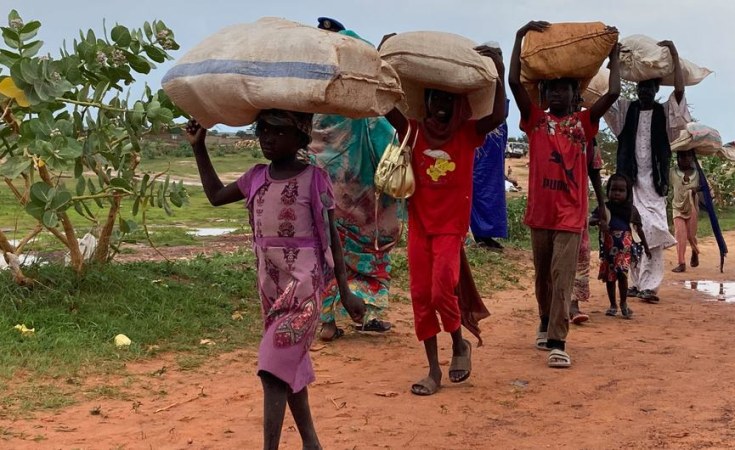El Gedaref / Sennar — The Ministry of Health and Social Development in eastern Sudan's El Gedaref reported that it recorded nearly 1,000 confirmed cases of cholera out of a total of 1,187 suspected cases between August 26 and November 5, including 36 deaths. Since august, the disease spread to many more areas in the state, the Health Ministry said in a statement yesterday.
The director of the Environmental Health Department of the Health Ministry, Mohamed Daoud, attributed the spread of the disease to the lack of capabilities available to address and combat the disease, in addition to its spread in neighbouring states and the weak level of health care in the region.
The Minister of Health in neighbouring Sennar, Ibrahim El Awad, reported that the state recorded the first three suspected cases of cholera in the village of Basut, in the northern part of the state, along the border with El Gezira.
"The patients last week went on a social visit to El Hidab village in El Gezira and transferred the infection to Sennar, he said in a press statement in the state capital of Singa yesterday.
The Ministry of Health in El Gezira announced a rise in cholera cases in the state to 256, including 11 deaths.
He said that the report puts a moral and legal responsibility on the warring parties.
Outbreaks
Sudan is grappling with a growing health crisis as dengue fever and cholera continue to spread across the country. The rapid expansion of these diseases has raised serious concerns, posing significant challenges to the country's healthcare infrastructure, as new cases were reported from Khartoum, El Gezira, El Gedaref, and West Kordofan.
'Humanitarian crisis of epic proportions'
The latest figures tracking the humanitarian situation in Sudan paint bleak picture. The UN Office for the Coordination of Humanitarian Affairs (OCHA) laments that "Sudan is experiencing a humanitarian crisis of epic proportions," and that civilians are paying the price of the ongoing fighting. An estimated 20.3 million people - 42 per cent of the population - face acute food insecurity. Of these, 6.3 million people are at emergency levels of hunger, only one step away from famine, OCHA says.
In its latest Humanitarian Key Messages published last week, the UN Office for the Coordination of Humanitarian Affairs (OCHA) shows that about half of the Sudanese population - 24.7 million people, including 14 million children - needs humanitarian aid and protection assistance. About 5.8 million people are displaced inside Sudan or have fled to neighbouring countries, half of whom are children. Women make up 69 per cent of the internally displaced, including those in war zones, and data from Chad indicates that 90 per cent of the refugees crossing the borders are women and girls. Similarly in Egypt, the UN Refugee Agency (UNHCR) has recorded that most of the registered households upon crossing the borders were female-headed ones. The conflict - and surging hunger, disease, and displacement - threatens to consume the entire country. It is time to silence the guns, OCHA says.


